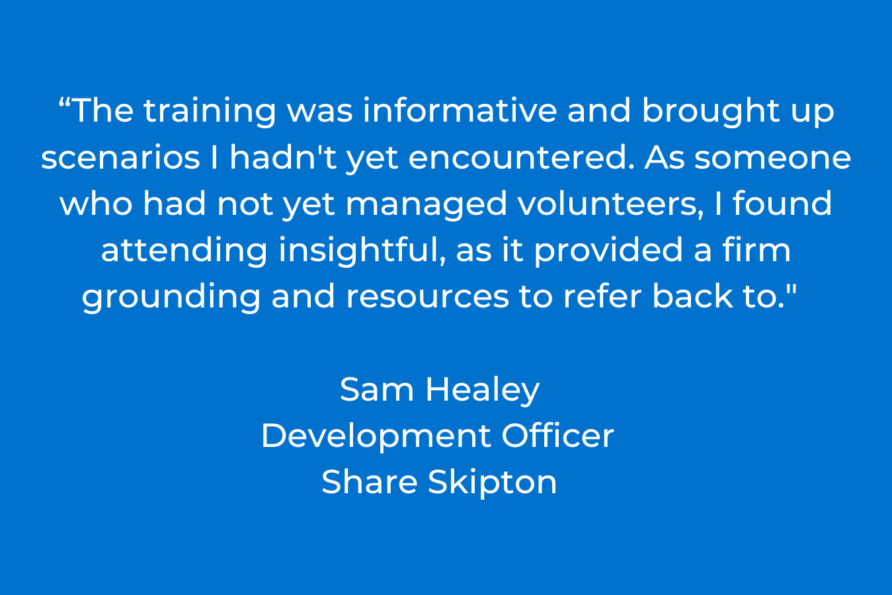This full-day session will give you the tools and confidence to manage volunteers effectively – from recruitment to retention.
You’ll learn how to:
- Understand volunteer roles, legal considerations, and common barriers
- Create engaging role descriptions and adverts
- Recruit volunteers using effective platforms and processes
- Provide inclusive support, training, and communication
- Handle challenges and resolve issues constructively
- Use surveys and exit interviews to improve volunteer experience
- Celebrate volunteer contributions and share their impact
- Build a sustainable volunteer strategy with wellbeing and self-care in mind.
Perfect for anyone involved in volunteer coordination, this session offers practical guidance and real-world insights to help your organisation thrive.






